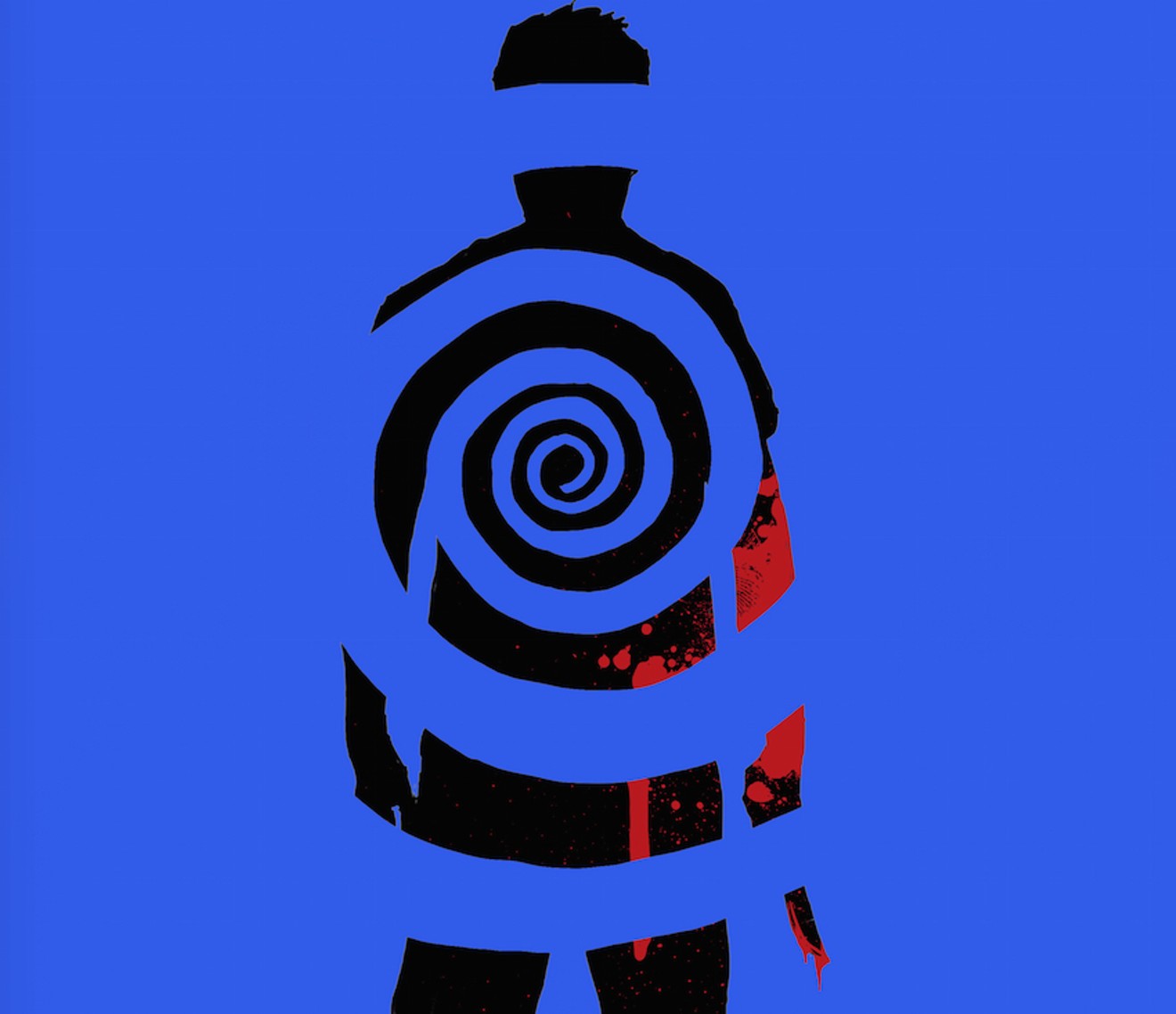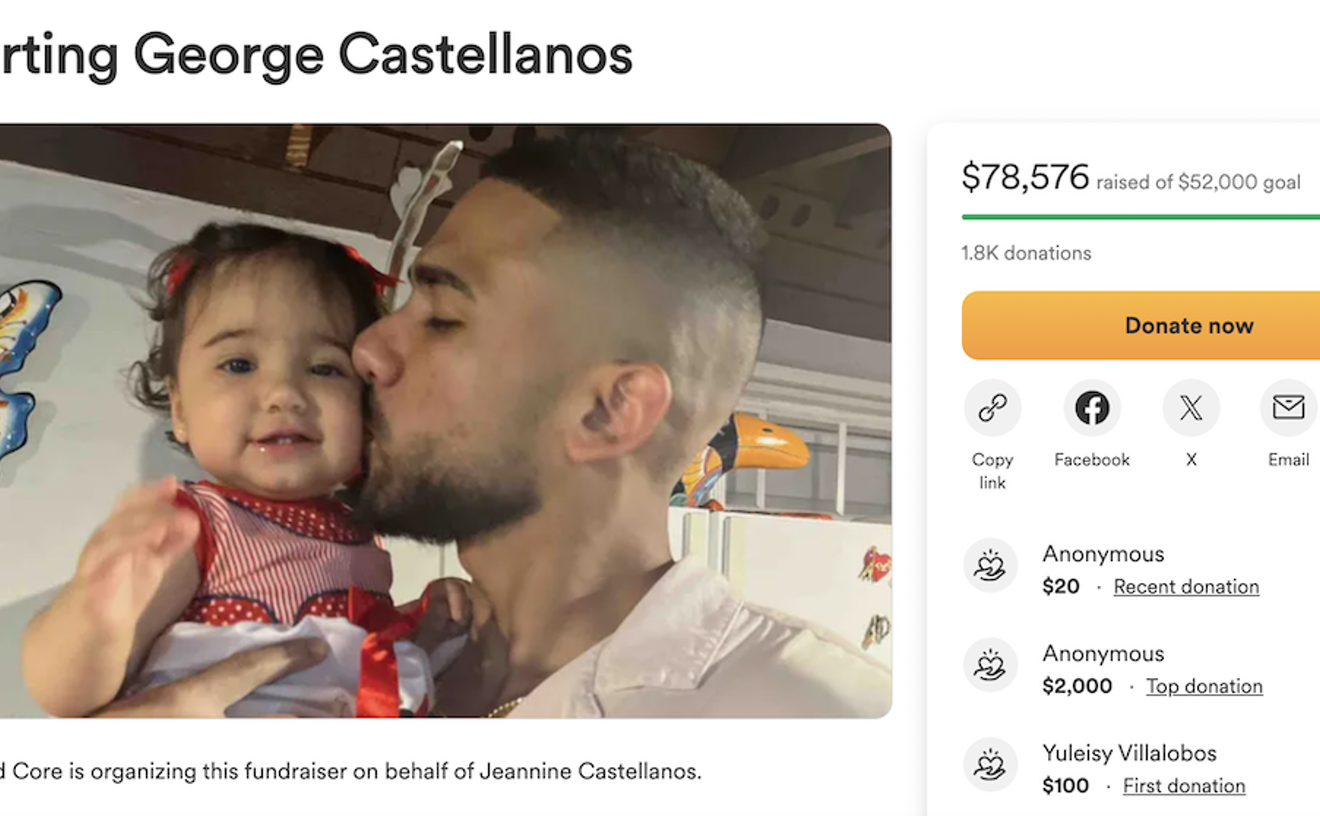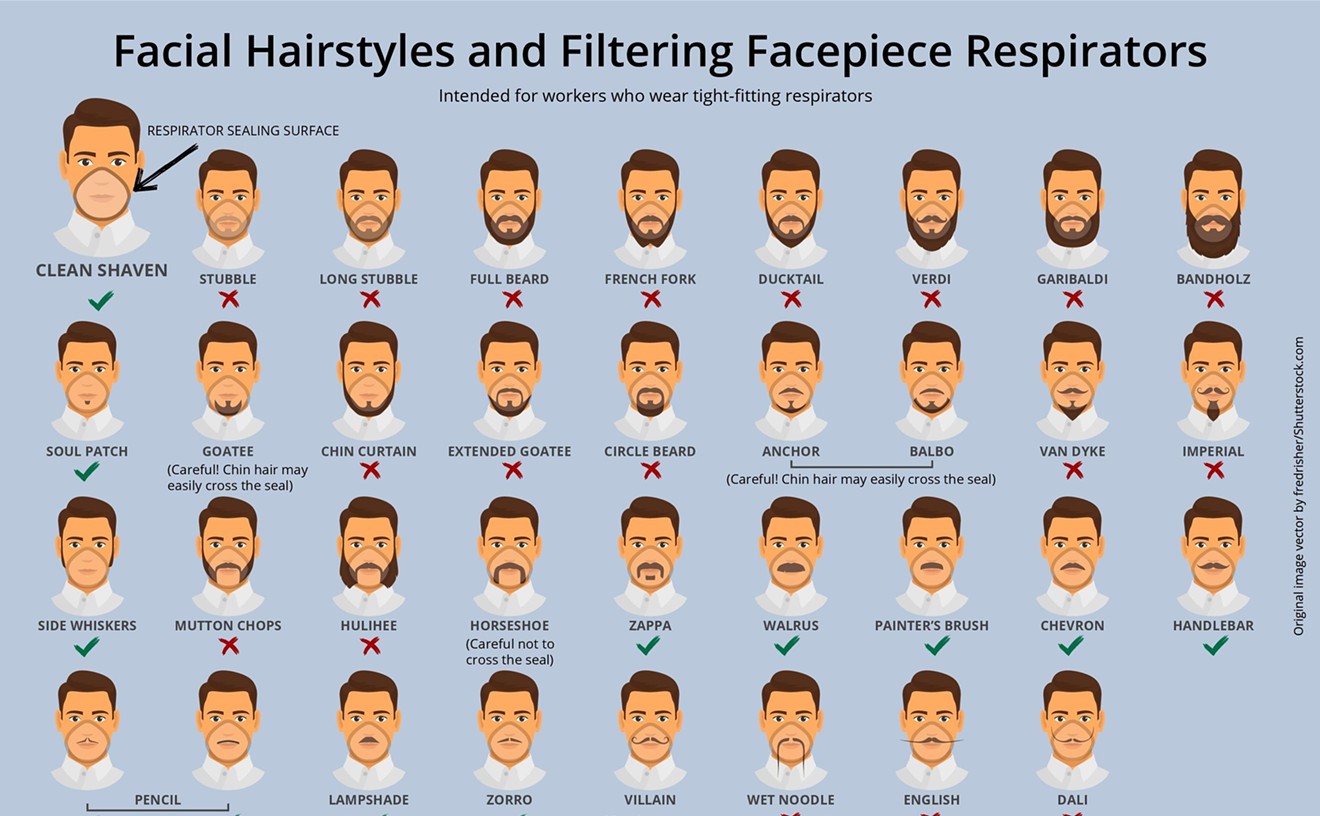When he came to that March morning in 2017, all Randy Herman Jr. could see was red.
There was blood on his hands, his body, the floor. On the woman lying face-down at his feet. On the hunting knife, usually kept at his bedside, that he now clutched.
Scurrying to the bathroom, he rested the knife on the countertop and scrubbed and washed and rinsed, though it hardly made a difference.
Panicked, disoriented, and thoroughly hung-over, Randy began to emerge from what felt like a dream state.
He paced the single-story house he shared with his longtime friend, Brooke Preston, age 21, who was now lifeless on the hallway floor, a blanket draped over her body.
Twenty-four-year-old Randy slipped into gym shorts and pulled a T-shirt over his head. What happened, he hadn't a clue, but the scratch marks running down his chest and arms told the story of a struggle.
He grabbed Brooke's keys on his way out the door and took off in her car. He didn't know where he was going. It didn't matter — anywhere but that house. Anywhere away from the blood.
In a daze, Randy drove to a park less than a mile from his home, which was now a crime scene. He dialed 911.
"Someone's been murdered," he told the operator, who pressed Randy for details.
Then, a crucial admission.
"Just send the police," he said, his breathing slow and heavy. "It was me. I'm sorry."

As far as fresh starts were concerned, it was hard to compete with the likes of West Palm Beach. After Brooke's older sister, 24-year-old Jordan, moved to Florida in May 2016, their childhood friend Randy often joked about packing up his life cold-turkey and trading northeastern Pennsylvania's passing glances of the Appalachian Mountains for South Florida's sprawling beachscapes. He and Jordan spent many evenings visiting on FaceTime, sipping beer, and imagining what it would be like if he joined her in West Palm.
After a few months, Randy decided to make it happen. He saw Florida as a land of opportunity, a place with job opportunities and second chances — and if anyone needed a second chance, it was Randy. In July 2016, he packed his bags and made the 20-hour drive to what was supposed to be paradise with Brooke, who herself had decided it was the right idea to make a move.
For the three friends who'd known one another the better part of a decade, South Florida had something for each of them. Jordan had started a new job at the regional water management plant, while Brooke finished her degree at State College of Florida. The sisters would be closer to their mother, who lived on the opposite side of the state in Sarasota. Meanwhile, Randy, who had recently reemerged from probation after his second DUI, was looking for an escape hatch.
Growing up, Randy and his older sister were raised by a single mother. Their parents had divorced when Randy was young, and his relationship with his father, Randy Sr., was strained. His dad didn't keep in touch often, but when he did call, he was usually drunk or explaining he would have to cancel a visit.
Randy's mother made a living as a bartender and server, at times working as many as three jobs at once to support the family. The two kids and their mom bounced around from apartment to apartment — seven times in all — and eventually landed in Laceyville, a rural town with a population just shy of 400, situated along the Susquehanna River.
Randy and Jordan, both sociable and well liked, became friends when they started high school. Brooke, outgoing and popular, was two years behind them. Even so, she was a fixture of their friend group. Randy, who often joined Jordan and Brooke for weekly dinners at their family's house, would eventually come to call the girls his sisters.
After graduating from high school in 2011, Randy became the first in his family to attend college. For two years, he studied criminal justice at Mansfield University while working part-time as a corrections officer at the county jail. But heavy drinking and recreational drug use were near-daily activities through his freshman and sophomore years.
"Pong. Party. Floor Three," he posted on Facebook shortly after arriving on campus. "Tonight. Maul it."
What happened, he hadn't a clue, but the scratch marks running down his chest and arms told the story of a struggle.
tweet this
In August 2013, a drug charge for marijuana possession cost him his job at the jail. Then, on Labor Day weekend that year, a few days after he pleaded to a lesser charge in the drug case, he was pulled over for driving drunk. Randy left school and moved back home, where he worked for his family's stone-cutting business as well as at a beef-processing plant.
He went through the motions of that routine for close to eight months. With no driver's license, he got a state-issued ID card so he could go out to bars and drink alone.
He was halfway through his probation in May 2014 when his sister got married. Randy left the reception drunk, swearing to his family he was OK to drive. That night, he was charged with his second DUI in less than a year.
It was while serving his one-month jail sentence that Randy saw his father's name and face flash across a bulletin on a local news station. He hadn't seen his dad in years, but there he was on a breaking news alert. The broadcasters reported that his father's live-in girlfriend had been murdered. Randy Sr. was the prime suspect. By the time Randy Jr. was released from jail, his father had fled to Alabama and taken his own life.
It was around this time that Jordan began calling Randy with updates about her new adventure in Florida. As they spoke on the phone, all he could envision was making an escape.
Within a few months, Randy and Brooke were ready to set course south. By July 2016, he and the two sisters had settled in West Palm Beach in a muted conch-shell-pink house on Sarazen Drive.
Soon after arriving in Florida, Randy landed a decent job at a marketing firm. It was the kind of job where he was expected to wear a jacket and tie — a point of pride for Randy and a visual indicator to his family back home that reinforced his newfound independence and maturity. But he quit four months later because he couldn't deal with the inconsistency of a commission-based salary, he said.
After resigning, Randy decided he would take some time off from the 9-to-5 life. The best thing, he decided, was to take a step back for a couple of months to clear his head.
A $25,000 inheritance from his father helped to keep Randy afloat during his unemployment stretch, but a familiar pattern took hold. He spent every night drinking to forget, staying out until dawn, and sleeping most of the next day. Paying daily visits to downtown bars and spending upward of $200 nightly on cocaine and booze, he blew through the entirety of his inheritance in three months.
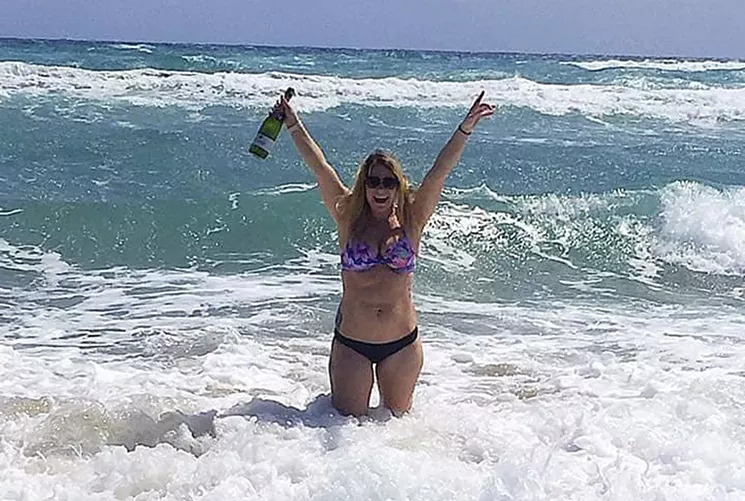
Five months after moving to Florida, as Randy drank up all of his money, Brooke made the decision to move back North.
Her boyfriend of four years had a job opportunity that took him from Pennsylvania to New York. The two decided they would live together there, and Brooke joined him in Buffalo in December 2016.
At the West Palm Beach house where she had lived with Randy and her sister, Brooke left behind a number of belongings and her car. A few months later, she planned a weekend trip to Florida. Although Jordan would be away in Colorado visiting her boyfriend there, Brooke planned to say goodbye to her friends in West Palm, pack the rest of her stuff, and drive her car to Buffalo.
When she arrived March 23, 2017, Randy had virtually no money to his name. Reaching the bottom of his checking account and drinking for weeks on end had sent him into a depression. But he had vowed to himself, again, he would rebound. For the two weeks leading up to Brooke's visit, he had even stopped drinking and smoking weed.
But sobriety be damned — her return was a special occasion. And the only way he ever really marked special occasions was day-drinking on the beach and getting hammered to the point of blackout. Brooke's second day in town, the two woke up early, made a run for a 12-pack of Bud Light and a bottle of champagne, and headed to the beach.
That day, Randy captured what would become the last photo of Brooke while she was alive. Standing in the ocean against the backdrop of a sunny blue sky and crashing waves, the 21-year-old smiled, her arms extended all the way toward the sky, the champagne bottle in one of her hands.
"Just come get me. I'm ready to kill Randy. He's pissing me off."
tweet this
After Randy threw back the 12 beers, they started back for the house but stopped to pick up two more cases of Bud Light. Randy's last memory is sitting on their back patio, marveling at how drunk he was while the sun was still shining. He would later estimate he drank upward of 30 beers that day.
By the time the sun set, Randy was slurring and stumbling around the house. As he became increasingly belligerent, Brooke grew increasingly annoyed.
In the meantime, a mutual friend, Kyle McGregor, was headed to the house to hang out and drink. By the time he was about halfway there, sometime after 7 p.m., he received a text from Brooke.
"Just come get me," she texted, Kyle recalled. "I'm ready to kill Randy. He's pissing me off."
The two agreed she would stay at Kyle's for the night and depart for Buffalo first thing the next morning.
When Kyle, age 25, showed up at the house, he and Randy didn't say much to each other beyond hello. Randy was stumbling around drunk and opening and slamming the fridge door as he grabbed more drinks. Within minutes, he had disappeared elsewhere in the house.
Not long after, Brooke went to her bedroom to pack a bag before heading to Kyle's. When she opened her closet, there was Randy. He was stark naked and, at the sight of Brooke, raised a finger to his mouth and lipped, "Shh." Shaken, Brooke left immediately and told Kyle about it as they left moments later.
Randy woke up in his own bed the next day still a bit drunk and with a gnarly hangover well on its way. He walked out of his bedroom and into the kitchen, where Brooke was packing the last of her things to load into her car.
She invited him to join her and Kyle for breakfast, but Randy said he was in no shape to leave the house. He headed back to bed to sleep it off.
It was after she had walked out the door that Randy remembered he was supposed to give her something to take back to Buffalo for her boyfriend: a T-shirt memorializing a mutual friend who died after drunkenly walking into the path of a car.
When she returned to the house after breakfast about an hour later, Randy was still in bed. He pointed her to his dresser, where Brooke found the shirt. She hugged Randy in bed and said goodbye.
The last thing Randy remembers is watching Brooke close the door behind her as she left. He lay back down, he later said, and drifted to sleep.
Less than 20 minutes later, Randy said, he came to and realized he was clutching his hunting knife. Brooke, brutalized beyond the point of recognition, was at his feet. Scratch marks lined his chest and arms. Whatever happened, Brooke had put up a fight.
The cuts that stretched across her palms and fingers show she tried to protect herself as Randy attacked her. He stabbed most of her body, including her chest, back, and neck, more than two dozen times. Her throat was cut.
Neighbors would later recount to Palm Beach County sheriff's deputies the sounds of a woman's screams coming from the house. None of them called 911.
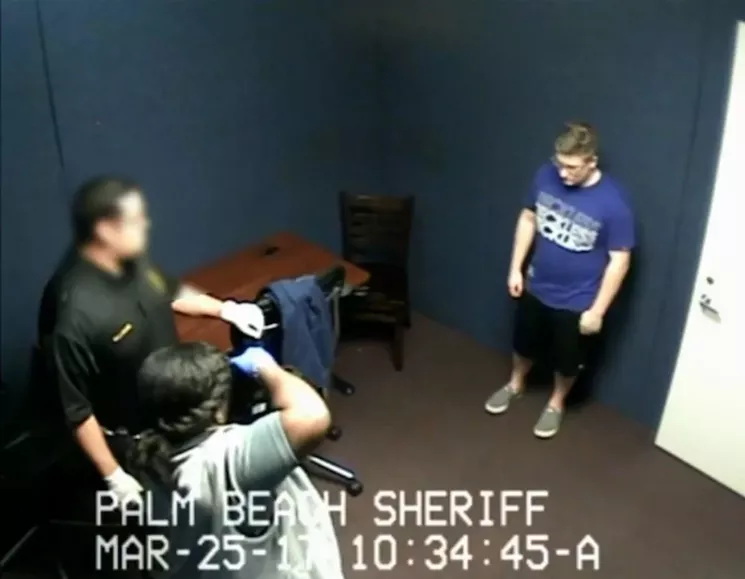
Brooke's mother and stepfather arrived at the headquarters of the Palm Beach County Sheriff's Office sometime after 6 that evening. Nancy Preston and Rich LeFrance had made the three-hour drive from Sarasota to West Palm Beach with virtually no information other than Brooke was likely dead.
So when a detective led them to an interview room, they walked in with a palpable sense of reservation, almost as if they'd been summoned there by mistake. The detective ducked out of the room briefly but assured them he'd be right back. Nancy turned to her husband to ask whether he'd seen the signage on the way into the room.
"This is not good. It says, 'Homicide,'" she remarked. "That means somebody killed her."
Soon after, the detective returned and the three took seats.
He began by saying investigators had been in touch earlier with Brooke's father, John, who was on a flight from Pennsylvania to Florida. John had told them about the tattoos on his daughter's shoulder, including the one that depicted birds spreading their wings. Another, on her side, was a dream catcher.
"I'm very sorry," the detective said in a conversation memorialized on video. "We are sure that it is her."
He told them about the 911 call and who had placed it. Nancy seemed somewhat relieved at the sound of Randy's name. It was a name she recognized — a name she trusted. Of course Randy would call 911 if something happened to Brooke. He was her friend.
Of course Randy would call 911 if something happened to Brooke. He was her friend.
tweet this
But it wasn't like that. The detective explained how Randy told the dispatcher he was the one who had killed Brooke. That — along with the fact he was covered in her blood — was probable cause for Randy's arrest.
"I've known this kid since he was like 10," Nancy told the detective. "Why?"
The detective had no answer.
As Nancy and Rich talked about Brooke's move to Buffalo, they told the detective how Brooke had told them just months earlier that her longtime boyfriend was "the one" and that they planned to be engaged soon.
"She's starting a new j —" Nancy said, stopping midsentence as she sobbed at the realization she was speaking in the future tense. "She's not starting a new job."
Now the mother needed to know: "How did she die?"
"I can tell you right now," the detective said, "it appears she was stabbed."
He affirmed that, for now, they were not allowed to see Brooke.
"My baby," Nancy wept. "My happy-go-lucky baby."
Around the same time, about 1,200 miles away, another mother was learning that police believed her child was a murderer.
Almost immediately after the stabbing, around 9 a.m., Randy sent a text to his mom, Kathi Adams, telling her he loved her. For the rest of the day, without success, she had tried to reach him and Brooke.
In Laceyville, Pennsylvania, word spread fast that something terrible had happened to Brooke. That evening, a friend knocked on Kathi's front door. Brooke was dead, the friend told Kathi, and Randy was in custody.
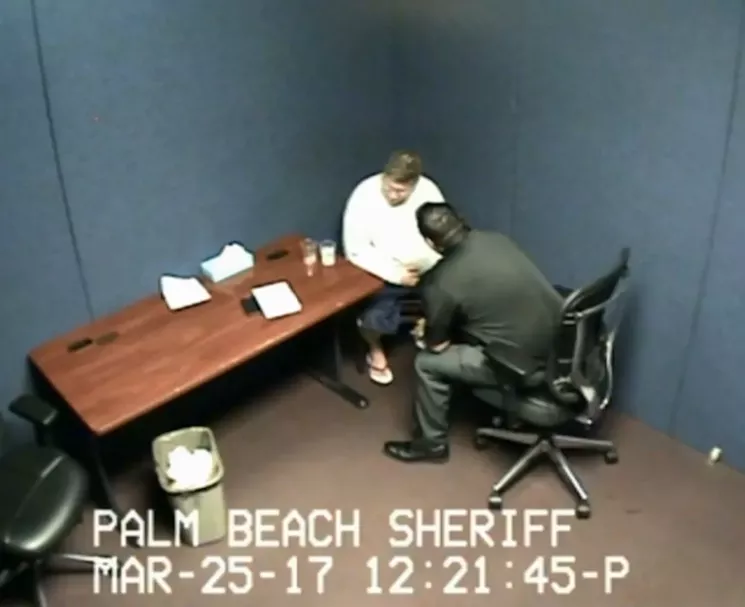
The day Brooke was killed, the detectives told Randy shortly before they charged him with first-degree murder that the evidence — Brooke's blood on Randy's socks and hands, his skin beneath her fingernails, and the 911 call in which he told the operator he had murdered somebody — spoke for itself.
A distraught and borderline catatonic Randy sat before a pair of detectives not even two hours after the killing. Staring at his feet, he repeatedly called himself a "bad person" and a monster. His voice barely rose above stifled whimpers.
"I'm so sorry," he said.
"I know you're sorry," one of the detectives said. "We gotta figure out what happened, man."
For two hours, the detectives pried and prodded to get even basic information from Randy.
Were Randy and Brooke intimately involved? No, Randy told them.
Was there some sort of argument in the moments before the attack? No, he said.
"Everything was fine," Randy murmured, his eyes still fixed on the floor.
The detectives grew visibly frustrated.
"If everything is fine, you don't end up calling 911 and saying there's been a murder," one said. "Everything is not fine — but it can be explained... This is your time to explain it, Randy."
But Randy offered no insights, claiming to be oblivious to any sort of possible motive. It seemed as if the final moments of Brooke's life, the moments he took from her, were missing from his memory.
The interview in many ways foreshadowed the rest of the case. In fact, investigators and prosecutors never presented a clear motive. It would be about a year after Randy's arrest before the public defenders handling his case would offer some sort of explanation.
Faced with Randy's own admission, his defense team was desperate for mitigating evidence — something, anything, that could answer why Randy had carried out such a grotesque act of violence.
In the investigation that followed, Kathi seemed to be the only one who doubted that Randy had killed Brooke Preston. She could not bring herself to accept what her youngest child had done.
In conversations with her son's attorneys, Kathi insisted Randy didn't have it in him to kill someone. In her mind, there was only one possible explanation.
"What about sleepwalking?" she asked the lawyers.
That, Kathi said, was the only way she could fathom what the detectives believed to be true.
At first, his lawyers dismissed her suggestion, she said in an interview. But Kathi wouldn't let it go. She cited at least two episodes from Randy's childhood: once from his bedroom to the kitchen, where she found him opening cabinets, and a second time, when he rode his bike down the street to the restaurant where she was working and mumbled gibberish as he walked in the door. He had no recollection the following day.
Shortly thereafter, the defense team brought on a forensic psychologist, who evaluated Randy for diagnostic signs of a parasomnia sleep disorder. At first, Randy himself thought the idea of presenting such a defense at his trial was ridiculous. But when his lawyers introduced him to Bonkalo's criteria, which outline behaviors and signs symptomatic of sleepwalking disorders, he came to believe it was possible.
Randy, his mother, and the defense team were sold. He would plead not guilty by reason of insanity, not because he was deemed clinically insane but because he would have to persuade a jury to believe that the gruesome attack was the result of a "defect" — in this case, the sleeping disorder.
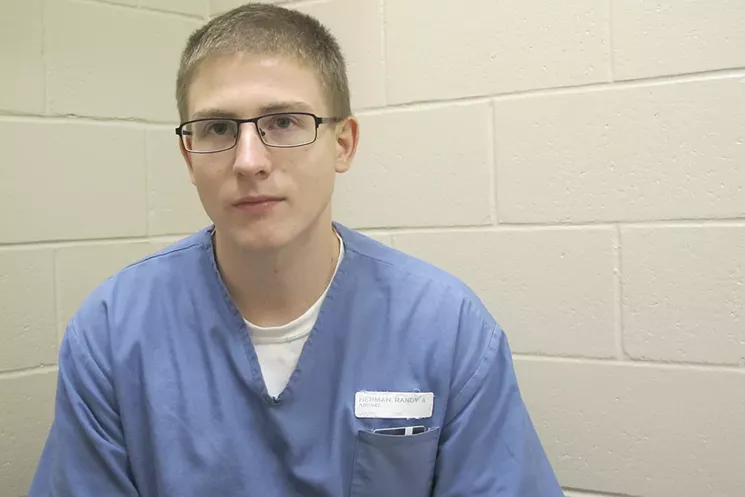
Randy spent the two years leading up to his trial detained in jail. From behind bars, he penned a 20-page autobiographical letter to his defense attorneys that he hoped they would share with prosecutors, although his lawyers never did. In the letter, he laid bare select pieces of himself, carefully articulating what he believed are the redeeming qualities and experiences that make him human.
He pointed to his caring nature, his fondness for his mother, and the deeply rooted insecurities that bred his social anxiety. He wrote at length about his rural Pennsylvania upbringing with days spent fishing on a lake, his drinking problem that developed as a teenager, and the sort of reckless abandon with which he lived his early 20s, which seemed to spiral out of control after two DUIs and his father's suicide.
"Every day is a constant battle with my inner-self, but I continue to fight for hope that I'll have another chance at life, a chance to do the right thing," he wrote. "For quite some time after I was arrested, I truly believed I was a monster, someone who deserved far worse than life in prison. However, I'm slowly discovering that what happened, the events of that single day, do not portray the type of person I am."
"I truly believed I was a monster, someone who deserved far worse than life in prison."
tweet this
Randy's murder trial was not the first time in the United States that a defendant has put forth sleepwalking as a criminal defense. In 1846, a Boston man was acquitted in the slaying of a sex worker, whom he nearly decapitated. He then tried to burn down the brothel where she resided. His attorney claimed he was a chronic sleepwalker and killed the woman in a sleep state.
About two decades later in Kentucky, a man fell asleep in a hotel lobby. When another man went to rouse him, the sleeping man burst awake, drew a pistol, and shot the stranger three times, killing him.
More recently, in 1997, a devout Mormon in Arizona stabbed his wife 44 times with a hunting knife. Investigators later said he dragged the mortally wounded woman to their backyard pool and held her head beneath water. Nevertheless, he was convicted of first-degree murder.
During Randy's trial, the defense team called the forensic psychologist who had evaluated Randy. But the jury bought none of it. In the end, the prosecutor's argument that Brooke's killing was a premeditated act, ostensibly driven by unrequited sexual desire, won over the jury. In May 2019, Randy was convicted of first-degree murder and sentenced to life in prison.
On a recent November morning, Randy Herman Jr. walks into the small beige visitation room at Hardee Correctional Institution, the maximum-security prison in Central Florida where he's serving his sentence. As he sits with his hands clasped, it's clear the gash on the webbed part between his left-hand pointer finger and thumb has scarred. He once told investigators he didn't know how he got it, but they would later surmise his bloodied hand had slipped from the knife's handle and down the blade as he stabbed his longtime friend.
The man who walks into the room is a far cry from the person in photos from news coverage of his trial. Then, he was broad and husky with a comb-over. Now, down 30 pounds, he's angular and wearing a buzzcut.
In prison, Randy works for the education department, where he's been a math teacher and an administrative assistant. But most of the time, he keeps to himself and reads whatever he can get his hands on in the library. He's making his way through the Harry Potter series for the first time. Most recently, he was reading the third installment, The Prisoner of Azkaban.
In the novel's fictional universe, those sentenced to Azkaban are drained of their life force and sentenced to relive their lives' worst moments. And he wants to talk about his.
What Randy says he remembers about the hours before he killed Brooke comes in fragmented and blurry mental playbacks, like the static of a TV set with poor signal and spurts of so-so clarity.
In his own words, Randy acknowledges responsibility for Brooke's murder.
"Looking back on it, it's just a haze. Everything happened so fast," he says. "I knew it had to have been me. I had a knife in my hand, I'm covered in blood, and she's not moving. It's like I don't remember anything from that point."
Though he still contends he was sleepwalking when he attacked Brooke, a certain degree of uncertainty lingers even in his own mind.
In a letter to New Times, Randy put it like this: "I believe what happened in my case could have been the culmination of tremendous stress, depression, trauma, and alcohol that essentially resulted in some unexplainable mental breakdown. I'm beyond sorry... Part of me feels like I deserve a life sentence... but the other part of me knows I did not intentionally do this and I deserve a second chance in life."
It's still nearly impossible, he said, to reconcile the person he believes himself to be with the version of himself that stabbed a woman to death. His lawyers are appealing his conviction.
In prison, Randy has sat down time and time again to write a letter to the Preston family. Each time, he has failed to find the words.
Back in Pennsylvania, Kathi is still learning to navigate her new shattered reality. She even avoids certain shops and stores for fear of people she might run into what they might say about Randy.
"It's a small, small town," Kathi says. "I just want people to know he's not psycho — he's not what people think he is."
The local news stations don't talk about her son or the woman he killed anymore. But she still thinks about the time a local broadcaster asked townspeople their reactions in the days following Randy's trial. Confining him to prison for the rest of his life, someone said on-camera, just wasn't enough.

